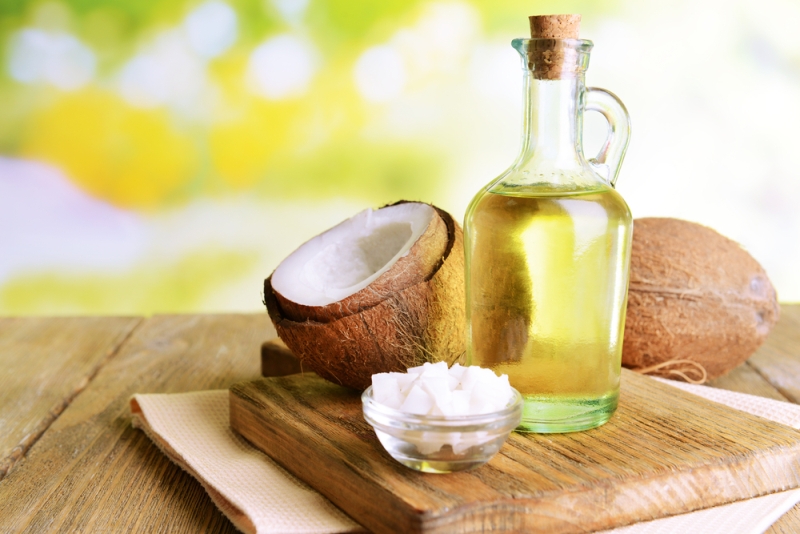Seborrheic dermatitis is a chronic inflammatory skin condition that causes symptoms such as dry or oily skin, flaking and the most common symptom – dandruff. The condition can affect the face, scalp, ears, upper chest, back, neck or any body fold, including the groin. Sebhorrheic dermatitis causes are not fully known, but experts believe the condition is related to an abnormal immune response. (1) Conventional seborrheic dermatitis treatment may include medicated shampoo to prevent flaking, but natural treatments can also work to help control dandruff and other symptoms
Seborrheic Dermatitis Causes and Risk Factors
- Autoimmune disorders
- Significant life stress
- Experiencing trauma
- Low exposure to sunlight resulting in a Vitamin D deficiency
- Hormonal changes, such as pregnancy or menopause
Seborrheic Dermatitis Symptoms
- Scaly patches and dandruff forming on the scalp
- Red skin that’s very dry and sensitive
- Extra dryness and flaking in areas of the skin that fold or are usually oily
- Skin peeling which sometimes appears as a discolored patch of skin
- Bacterial infections

Sebhorreic Dermatitis Treatment
1. Treat Scalp Dryness
Dandruff is the most common of the seborrheic dermatitis symptoms. Natural sebhorrheic dermatitis treatments for dandruff include:
- Applying a combination of hydrating coconut oil and essential oils to the scalp
- Making a DIY dry scalp shampoo or mask to cover itchy areas
- Not shampooing too often
- Increasing your intake of antioxidant-rich foods such as berries and leafy greens
- Using a humidifier if the air in your home is dry
2. Boost Immune Function
Low immune function can cause dandruff and other seborrheic dermatitis symptoms. (2) To help improve your immunity:
- Get 7-8 hours of sleep each night
- Exercise regularly
- Consider taking supplements such as omega-3’s and probiotics
- Spend some time outdoors each day
- Try natural stress relievers like yoga, reading, writing or meditation
- Use adaptogen herbs to help your body better deal with stress
- Consume more anti-inflammatory foods such as garlic, apple cider vinegar, bananas, avocados, flaxseed, ginger and coconut oil

3. Reduce Intake of Inflammatory Foods
Limit processed and packaged foods to help keep inflammation levels low. (3) Foods that are known to worsen autoimmune reactions include:
- Added sugar
- Processed oils such as corn, soy, canola, safflower and sunflower oil
- Fried foods and trans fats
- Wheat, dairy, shellfish and peanuts
4. Stay Hydrated
Staying hydrated is an important part of seborrheic dermatitis treatment. Drinking water throughout the day can help reduce dandruff and dry skin. Avoid salty foods, alcohol, caffeine and sugary drinks to prevent dry skin from being aggravated. Stick to water, green tea and homemade smoothies and juices to stay hydrated.
5. Use Coconut Oil and Essential Oils
Coconut oil is a natural seborrrheic dermatitis treatment, thanks to it strong antiviral, antimicrobial and anti-fungal properties. Essential oils can also be used to help soothe and heal the skin. (4) Try cedarwood, lemongrass, rosemary, lavender or tea tree oil. Combine 8 drops of cedarwood, rosemary and tea tree oil with 1 teaspoon of raw honey and 4 ounces of coconut oil to make a homemade treatment for dandruff and dry, itchy skin. Massage the mixture into the affected area and leave it on for 15-20 minutes, then rinse.

6. Take Zinc
A zinc deficiency can lead to skin irritation. (5) Consider taking a high-quality zinc supplement to help reduce dry skin. You can also fill your diet with zinc-rich foods including spinach, kidney beans, flaxeeds and pumpkin seeds to reduce skin dryness and irritation.
7. Avoid Irritating Beauty Products
Many beauty products contain chemicals that can make dermatitis symptoms worse. Use natural, organic products on your skin when possible and be careful to avoid products that contain harsh chemicals. Chemicals that can dry out the skin include parabens, sodium laureth and lauryl sulfate.


